Five faculty named Harvard College Professors
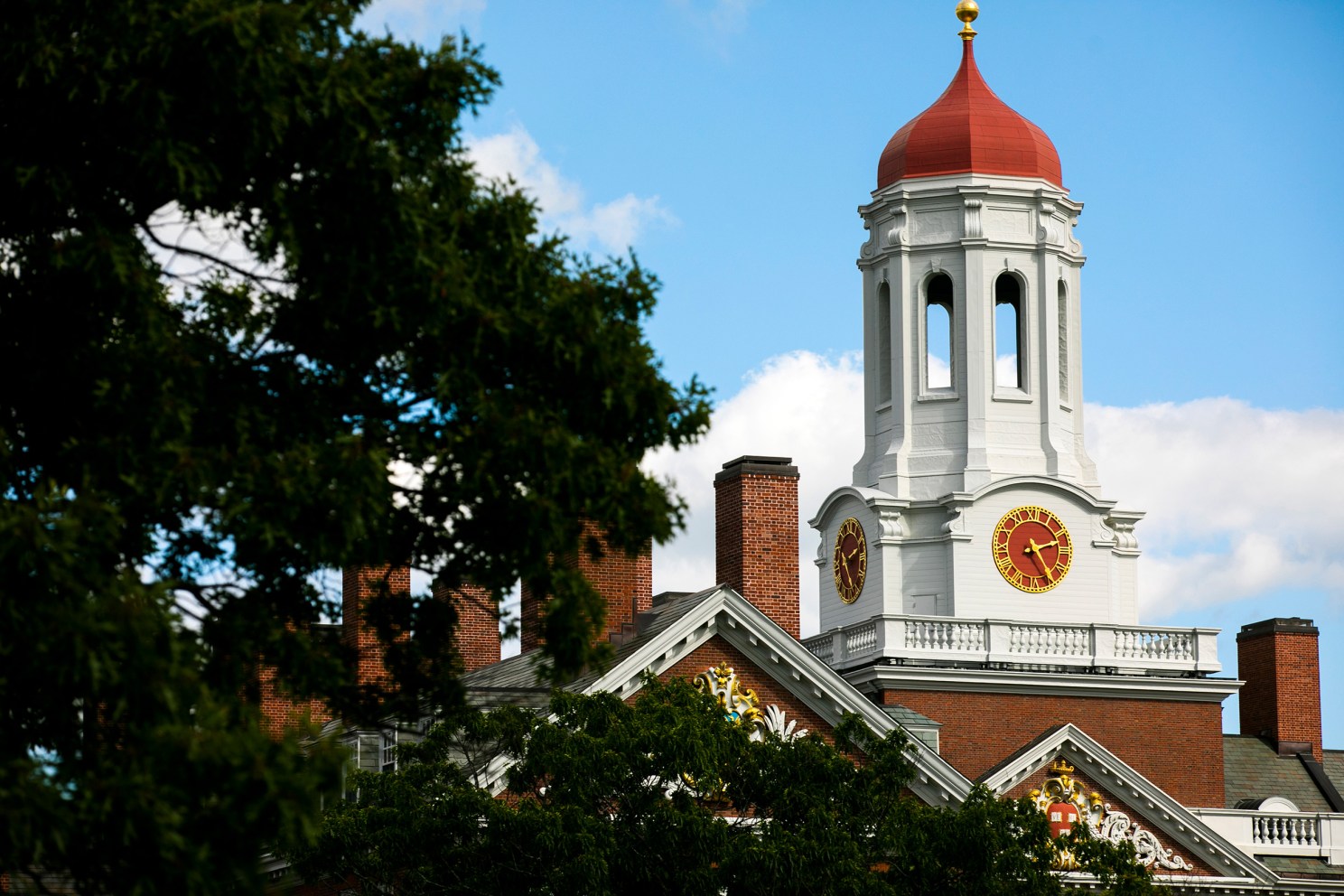
Stephanie Mitchell/Harvard Staff Photographer
Scholars recognized for sharing with students ‘particular joy of academic inquiry’
Five faculty members have been named Harvard College Professors for their commitment to undergraduate teaching. The scholars work in fields ranging from philosophy to regenerative biology. They are:
- Matthew Liebmann, Peabody Professor of American Archaeology and Ethnology
- Yue M. Lu, Gordon McKay Professor of Electrical Engineering and of Applied Mathematics
- Selim Berker, Alford Professor of Natural Religion, Moral Philosophy, and Civil Polity
- Jie Li, professor of East Asian languages and civilizations
- Ya-Chieh Hsu, professor of stem cell and regenerative biology
“I am delighted to recognize these five colleagues for their contributions to undergraduate teaching, their work in graduate education and research, and their mentorship and support of students,” said Hopi Hoekstra, the Edgerley Family Dean of the Faculty of Arts and Sciences. “With creativity, passion, and an engaging approach, they each invite our students to join a world of knowledge and to discover the particular joy of academic inquiry. I am enormously grateful to these colleagues for their extraordinary commitment to our students and our teaching mission.”
The Harvard College Professorship was launched in 1997 with a gift from John and Frances Loeb. Professors hold the title for five years and receive support for a research fund, summer salary, or semester of paid leave.
Matthew Liebmann
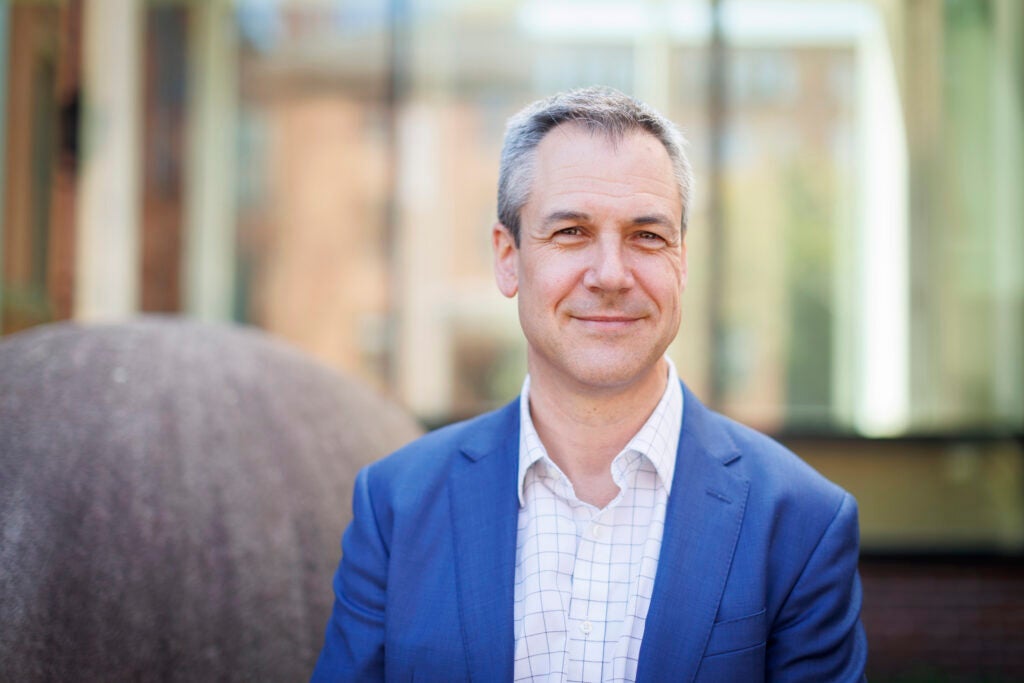
Students in Liebmann’s courses regularly engage in hands-on learning, including field trips to the Mashantucket Pequot Museum in Connecticut. “When we get into really deep discussions about happiness, love, warfare, and violence, and hear everybody’s different perspectives — those are just great conversations to be a part of,” he said of “Deep History,” the gen-ed class he teaches with Frank B. Baird Jr. Professor of History Daniel Smail. “That’s where I feel like I’m getting more out of it than the students.”
Liebmann, chair of the Anthropology Department, added: “Anthropology is the study of human diversity, and an appreciation for human diversity includes the variety of ways that people lived in the past as well as the variety of ways people are living today around the world. The appreciation of that diversity makes the world safe for difference and that’s something that anthropology can really offer.”
Liebmann’s current projects include a long-term research collaboration with the Pueblo of Jemez tribe in New Mexico. His work is “in service” to the needs of the tribe and attempts to fill in the gaps of the historical record using archaeology.
“We always strive for it to be as collaborative as possible and that means working with the tribe from the earliest stages to identify appropriate research questions, identify appropriate methodologies to answer those questions, and talk about what interpretations of the data we might have after they help me gather data in the field,” he said.
Yue M. Lu
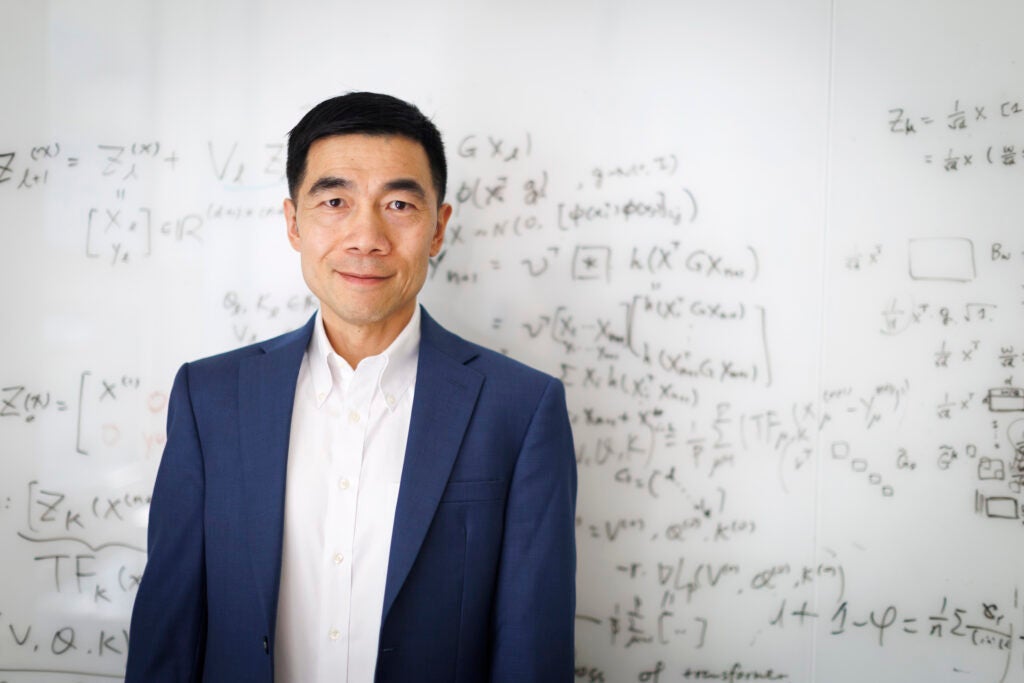
Lu favors a dynamic approach to teaching. “I constantly remind my students that mathematics is not a spectator sport,” he said. “True understanding requires active engagement, and tackling mathematical problems can also be incredibly enjoyable.”
Lu studies randomness and patterns in high-dimensional systems in fields such as signal processing, information theory, and machine learning. He uses mathematical tools to understand the collective behavior of large systems that involve many interactive and random components, he said.
“My favorite part of lecturing is encouraging students to ask questions and challenge my solutions,” the SEAS professor said. “By going through my students’ unique perspectives, I often discover innovative solutions that I hadn’t previously considered.”
Lu cherishes the connections he maintains with many students even after they leave his classroom.
“One of the most rewarding aspects of my career is encountering alumni who share memorable experiences from their time in my courses,” he said. “While it’s not essential for them to still remember every specific formula, I’m deeply gratified when they tell me that my introduction to probability course has deepened their appreciation and understanding of the nature of uncertainty.”
Selim Berker
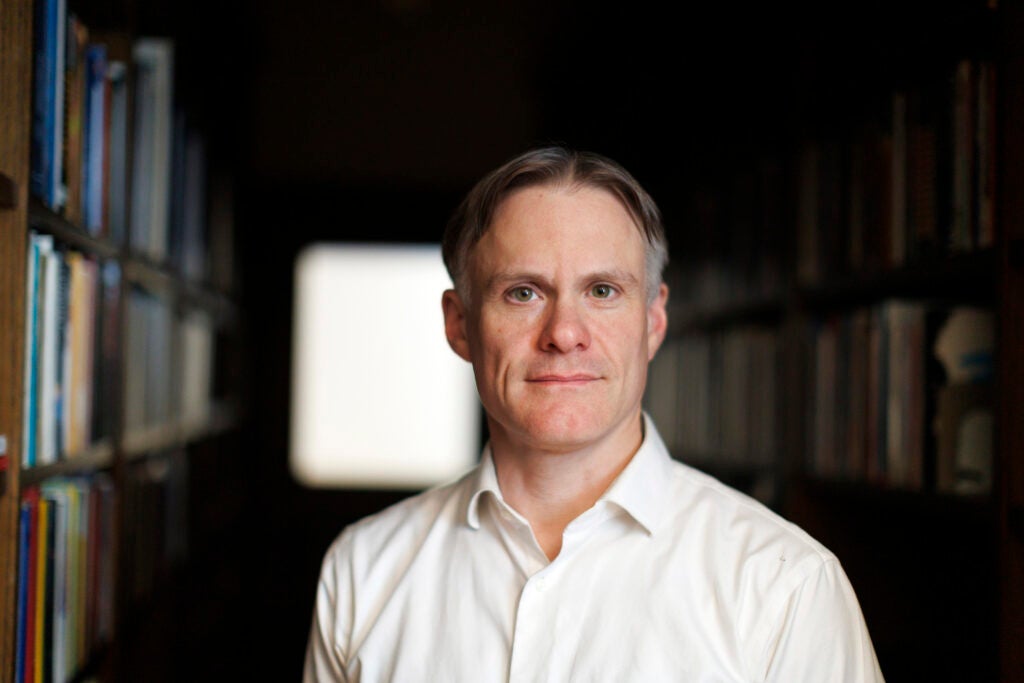
During his 100-level lectures, Berker makes sure to leave time for dialogue with the class.
“I’m learning from my students while I’m teaching them material and getting feedback on the things that I myself am grappling with,” he said.
A philosopher who focuses on ethics and epistemology, Berker welcomes the chance to sharpen big questions to their most powerful forms in conversations with undergrads.
“We get into this back and forth about what’s happening, and that’s the part of teaching that I just love the most,” he said. “Part of it involves trying to work hard to hear what people are asking and figuring out the best versions of what they’re asking. Then other students can refer back to that student’s points and think about it themselves and work through that back and forth.”
Jie Li

Li approaches her work in an interdisciplinary manner and finds herself “very at home” in East Asian Studies.
One of her most popular classes, “East Asian Cinema,” has grown significantly since she joined Harvard’s faculty in 2013. Topping out at around 170 students, the class gives students a survey of East Asian cinema while also teaching them filmmaking. Students use their phones to illustrate different cinematography techniques or the styles of East Asian directors.
At the end of the semester, Li and her team of teaching fellows present students with their own “Golden Monkey Awards,” modeled after the Oscars. She was quick to praise her teaching fellows for making the classes possible.
“It’s wonderful to see the amount of talent at this University,” Li said. “Because students are coming from all kinds of backgrounds and it’s a gen-ed program, a lot of them are musicians, actors, and script writers. They pull their talents in this class and admire each other’s talents. I really like combining both this analytical and creative dimension.”
A double Harvard alumna, Li earned her A.B. in East Asian Studies in 2001 and her Ph.D. in modern Chinese literature and film studies in 2010. Her most recent book is titled “Cinematic Guerrillas: Propaganda, Projectionists, and Audiences in Socialist China.”
Ya-Chieh Hsu
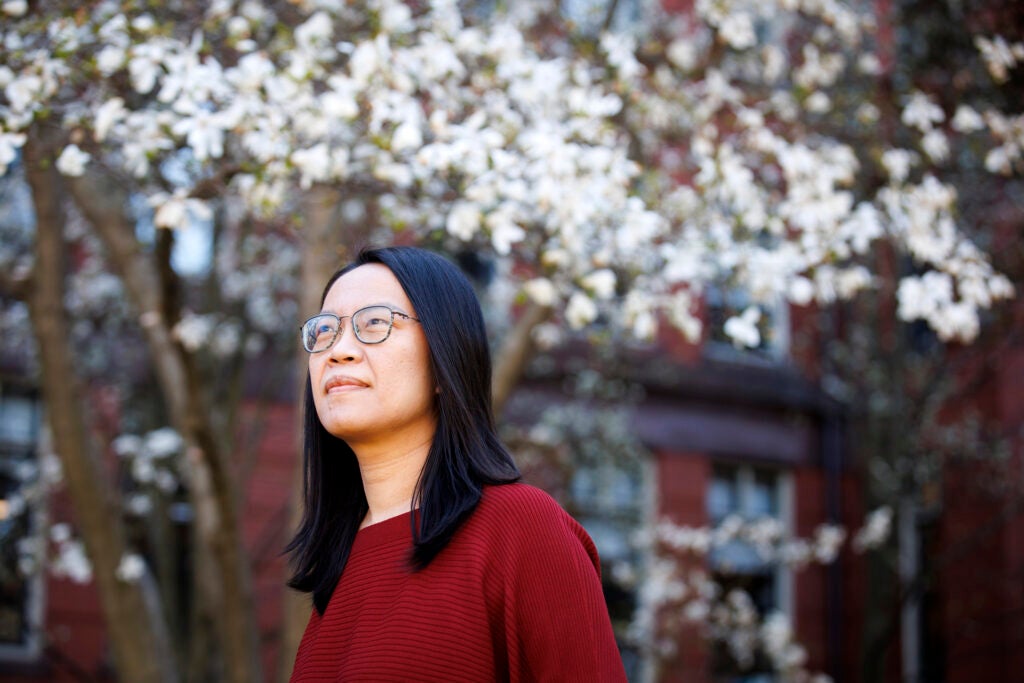
Hsu’s lab investigates how tissue formation, regeneration, and repair are shaped by interactions among diverse cell types, physiological changes, and environmental changes.
Outside the lab, Hsu teaches undergraduates and graduate students. Her favorite course is “From Cells to Tissues.”
“This is a course I developed that teaches students key principles of how cells, tissues, organs, and organisms are built, as well as the diseases that occur when these principles go awry,” she said. “It is a highly interactive course that not only teaches students principles and knowledge, but also empowers them to think critically and to learn from one another through discussions.”
As part of the coursework, students come up with a pitch for a documentary about a scientist’s personal story and major discoveries. “My goal is for students to appreciate that behind every scientific discovery is the hard work, creativity, curiosity, and perseverance of real people. People are the real magic behind science,” she said.
Previously a recipient of the Roslyn Abramson Award for excellence and sensitivity in undergraduate teaching in the FAS, Hsu emphasized the importance of highlighting and celebrating different paths to success.
“When I first came to Harvard, I somehow felt a bit like a misfit,” she said. “There seemed to be an implicit notion of what success looked like around here. Over the years, however, I’ve come to realize that being different is a real asset. It’s important to cultivate an awareness that there are many versions of what success looks like in our classroom, on our campus, and in our scientific community, and all forms of success should be celebrated.”




